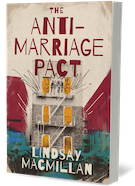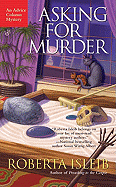Notes: Airport Stores Take Off; e-Mississippi
Media companies, including newspapers and TV and cable channels, are opening more stores in airports in a bid to expand their brands, the Associated Press (via the Ledger) reported.
Among examples: USA Today and Sports Illustrated stores, the first for both, which open tomorrow in the Detroit airport as well as New York Times, CNBC and Fox News airport stores. (Incidentally Borders is opening a store and newsstand, too, tomorrow in Detroit's new North Terminal.)
"Airport travelers are a unique customer set, with an unusually high demographic of age and income," Laura Samuels, spokesperson for the Hudson Group, which operates some of the stores. "These are people who thrive on information."
Some of the stores sell books, including those of Fox and the Times, the latter of which has shelves "well stocked with titles on its own best-seller lists or featured in its Sunday Book Review section."
---
The Girl with the Dragon Tattoo by Stieg Larsson, published by Knopf today, is the latest pick in the Barnes & Noble Recommends program. B&N said that one of its booksellers commented, "This gritty thriller is packed with deceit, treachery, and plenty of dirty family secrets--enough to fill an entire basement with skeletons." Another B&N bookseller called The Girl with The Dragon Tattoo "gripping! I even read at stop lights and while I was brushing my teeth."
We loved the book, too, as noted here yesterday (Shelf Awareness, September 15, 2008).
---
Even as independent bookstores in Mississippi are "embracing
new technology, [they] are managing to maintain the qualities that make
them special," the Mississippi Business Journal reported.
"We
get a good response from all of it," said Jamie Kornegay, owner of
TurnRow Book Co., Greenwood, who sends out e-mails, has a store website
with online ordering and Rhythm & Books Blog. "We don't have a
cookie cutter approach. That's what independent bookstores have going
for them. People feel connected. We're seeing an increase in traffic on
our website. . . . There's so much out there on the Internet and people
rely on it. Those who know what they're doing use it avidly."
Joe
Hickman, manager of Lemuria Books, Jackson, added, "We've got to accept
it and move on. People are in front of computers all day. . . . People
everywhere like independent bookstores, the atmosphere, and we're
trying to replicate that experience on the Internet. It helps us reach
more people. They learn about us on the Internet and want to visit."
At
Square Books, Oxford, manager Lyn Roberts observed, "Anything that can
help us do our jobs better, we do it. We probably use it more than is
apparent to visitors to the store. We sell books online and sell
collectibles through other sites, but people like to look at books and
hold them. Technology is wonderful. We have some really smart young
people working here, and they keep us up to date with it."
---
NPR's All Things Considered discovered book trailers last week.
---
Man Booker Prize quandary: Does anyone still care?
In the Independent,
Boyd Tonkin asked whether "the British audience for ambitious fiction
[is] dying off, losing faith, or just drifting away? . . . It does
seem, however, as if a dwindling band of domestic readers shares this
annual passion. In the five weeks after the long-list announcement on
29 July, the 13 titles of the "Booker dozen" sold fewer than 14,000
U.K. copies; on average, barely 1,000 each. This is, frankly, pathetic.
Writers and retailers will pray the shortlist delivers a bigger boost.
Before the early-1980s Booker battles caught the public imagination,
the prize tiptoed politely from year to year as a small-time coterie
event. Now, a quarter-century of starlight has begun to fade. Both
marketplace and media offer ever-shrinking space for 'literary
fiction.' The prize ceremony, which once secured its own BBC programme,
now has to make do with a scrappy insert in the news."
---
Did they mean Wall Street?
New York magazine offers a doom-and-gloom feature on book publishing whose title says it all: "The End."
Here's Boris Kachka's cheerful starting point: "Sales at the five big publishers were up 0.5 percent in the first half of this year, bookstore sales tanked in June, and a full-year decline is expected. But pretty much every aspect of the business seems to be in turmoil. There's the floundering of the few remaining semi-independent midsize publishers; the ouster of two powerful CEOs--one who inspired editors and one who at least let them be; the desperate race to evolve into e-book producers; the dire state of Borders, the only real competitor to Barnes & Noble; the feeling that outrageous money is being wasted on mediocre books; and Amazon.com, which many publishers look upon as a power-hungry monster bent on cornering the whole business."
He investigates some of the problems and profiles HarperStudio, the new HarperCollins imprint, as an example of a new kind of publisher that might point the way to better times.
Then the end of "the End":
"The kind of targeted, curated lists editors would love to publish will work even better in an electronic, niche-driven world, if only the innovators can get them there. Those owners who are genuinely interested in the industry's long-term survival would do well to hire scrappy entrepreneurs at every level, people who think like underdogs.
"It'll be rough going in the meantime; some publishers will transform, some will muddle through, some will die. And there will, no doubt, be a lot of editors for whom even this diminished era will look like the last great golden age, when some writers were paid in the millions, some of their books produced in the millions, and more than half of those books actually sold. Book publishing is still a big-league business, and that's a hard thing to let go of. 'There’s something terrible,' says an editor at a prestigious imprint, 'about admitting that you’re not a mass medium.' "
---
Effective September 22, Terri Harker joins Hachette Book Group Canada as marketing director. She has been director of distributor sales and retail marketing for Simon & Schuster's children's division in New York. Before that she spent 15 years with S&S in Canada.






SHELFAWARENESS.0213.S4.DIFFICULTTOPICSWEBINAR.gif)







SHELFAWARENESS.0213.T3.DIFFICULTTOPICSWEBINAR.gif)
 Dr. Rebecca Butterman is my kind of person: "Spring, and a young woman's fancy turns to Louis' Lunch: broiled square hamburgers on toast, loaded with cheese, tomato, and onions." She's on her way to meet her friend and fellow therapist Annabelle for their annual spring rite at Louis', but when she arrives at Annabelle's office, it's closed. After phoning and getting no answer, she goes to Annabelle's house, where she finds her friend crumpled on the bedroom floor, beaten nearly to death. The police think it was a botched break-in; Rebecca thinks otherwise, especially after someone tries to run her down in a parking garage, and someone else snatches her purse. Even more puzzling and frustrating is that she can't visit Annabelle in ICU, ejected repeatedly from the ward by the hospital social worker and Annabelle's sister, Victoria. Rebecca decides to do a bit of sleuthing.
Dr. Rebecca Butterman is my kind of person: "Spring, and a young woman's fancy turns to Louis' Lunch: broiled square hamburgers on toast, loaded with cheese, tomato, and onions." She's on her way to meet her friend and fellow therapist Annabelle for their annual spring rite at Louis', but when she arrives at Annabelle's office, it's closed. After phoning and getting no answer, she goes to Annabelle's house, where she finds her friend crumpled on the bedroom floor, beaten nearly to death. The police think it was a botched break-in; Rebecca thinks otherwise, especially after someone tries to run her down in a parking garage, and someone else snatches her purse. Even more puzzling and frustrating is that she can't visit Annabelle in ICU, ejected repeatedly from the ward by the hospital social worker and Annabelle's sister, Victoria. Rebecca decides to do a bit of sleuthing.